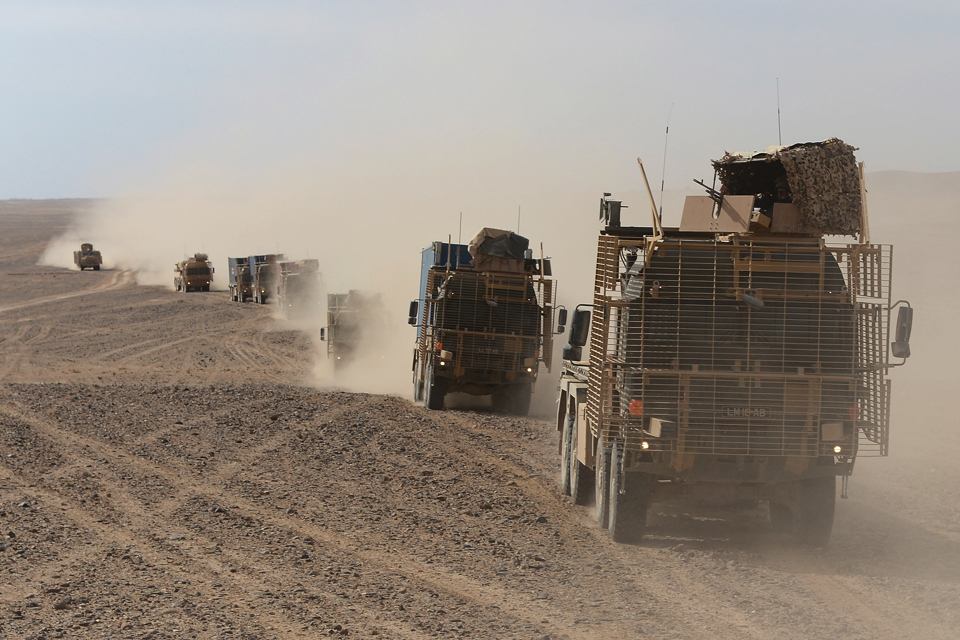British forces deliver the goods to the front line
The vital job of making deliveries of kit and personnel to the front line in Afghanistan comes with no shortage of challenges.
![Supplies being delivered to a patrol base by the Immediate Replenishment Group in Nahr-e Saraj [Picture: Leading Airman (Photographer) Rhys O'Leary, Crown Copyright/MOD 2013]](https://assets.publishing.service.gov.uk/government/uploads/system/uploads/image_data/file/6350/s300_NN130004015g.jpg)
Supplies being delivered to a patrol base by the Immediate Replenishment Group
The Immediate Replenishment Group (IRG) operates out of Main Operating Base Price as part of Transition Support Unit Nahr-e Saraj and deploys on a daily basis to deliver stores, equipment and personnel to patrol bases across Afghanistan.
Preparation starts the night before, with any necessary last-minute changes being made to the load. The number of vehicles deployed will vary according to the location being visited and what stores are being delivered.
Once loaded, the IRG departs, leapfrogging from patrol base to patrol base, delivering kit and/or collecting personnel.
Despite their familiarity with the area, IRG members are always mindful of the threat posed by improvised explosive devices and the dangers of travelling on poor roads in inhospitable terrain.
Marine Conor Bohan, from 40 Commando Royal Marines, said:
On one occasion one of our wagons got stuck in a wadi; we had to jump into waist-deep water to hook up a line and drag the vehicle out - all the while there was a very real threat warning for that immediate area.
Four months into their tour, the IRG has already completed 150 replenishment patrols - more than any other call sign in Nahr-e Saraj.

An Immediate Replenishment Group vehicle convoy making its way across the desert [Picture: Leading Airman (Photographer) Rhys O'Leary, Crown Copyright/MOD 2013]
Corporal Tom Allen of the Royal Logistic Corps said:
We are definitely the busiest call sign in the Nahr-e Saraj area of operations. We are out most days - often 6 out of 7 - which makes the tour go really fast.
Everyone in the area of operations appreciates the work of the IRG - especially as we bring them mail.
The forthcoming withdrawal of British military personnel from Afghanistan will have a major impact on the workload of the IRG due to the expected number of logistical moves.
The commander of the IRG, Battle Group Logistics Officer Major Paul Barden, said:
Logistics remain an important aspect of any campaign, more so as the redeployment of UK forces draws near. Now that Afghan National Security Forces are good enough, we can focus on being there to support them if required, whilst the IRG continues to sustain our own forces.
The focus on reshaping the ISAF (International Security Assistance Force) footprint during this deployment has been a marked change from any previous tour but this is what successful transition looks like.
Deployed in September 2012, by December the IRG had conducted around 120 patrols, delivering 2,180 tonnes of stores and transporting over 350 ranks safely to their destinations.
In the first month of 2013, they topped the 150 mark, making them one of the most consistently busy call signs.
The IRG is made up of 10 Royal Marines, 10 personnel from the Royal Logistic Corps and one Gurkha from the Royal Gurkha Rifles.